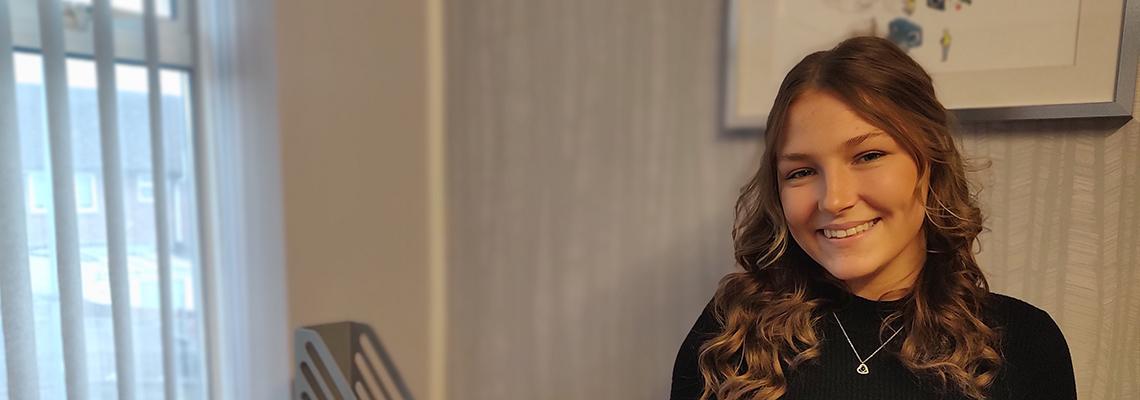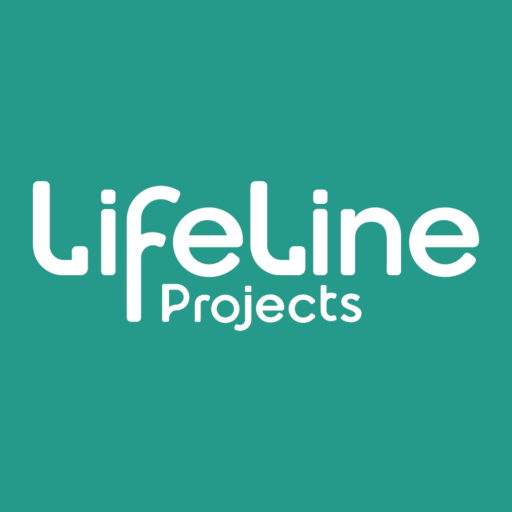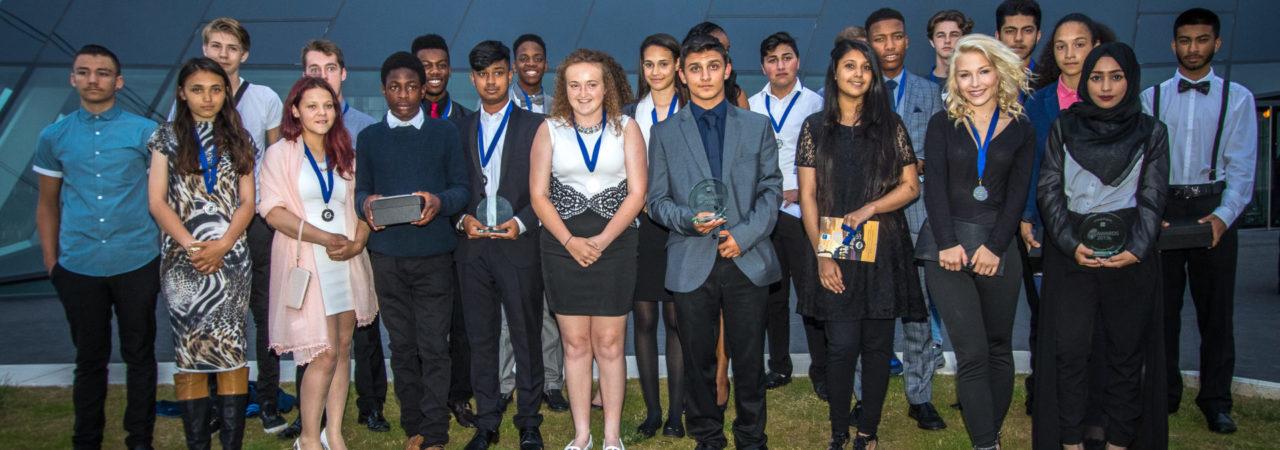LifeLine first encountered Amy through our SW!TCH mentoring programme whilst she was attending Dagenham Park School in 2013. At the time, Amy was dealing with multiple issues that had piled up and left her on the edge of being excluded from school.
With mentoring, Amy thrived and regained her confidence. She excelled at the after-school activities she engaged with.
She went on to become a Champion for LifeLine and was nominated for the LifeLine Young Person of the Year award in 2015, part of the LifeLine Awards held at The Crystal in Royal Victoria Dock, London. Amy was nominated in recognition of the impressive progress she had made in overcoming her issues and her new commitment to education.
After successfully completing school, Amy later went on to complete a degree in Law with Criminal Justice.
Amy has overcome great adversity after dealing with the death of two of her close friends and with a personal disorder which affected her eating habits.
This also had a severe impact on her attendance, her timekeeping, her attitude towards school, as well as her overall health.
Despite this, Amy has now successfully completed most of her exams and was put forward to take her English exam early.
Where were you born and raised?


I was born in Redbridge, brought up in Dagenham, then I moved to Barking when I was 13. Luckily, I stayed in same school, Dagenham Park. And I liked the move because most of my friends were in Barking
We moved from a tiny flat to a house. At first, it was just me and my parents, but as the family grew, we needed more space. It taught me that your home is where your family is. I was the first child, first granddaughter. Now there’s twenty of us; extended family, including my cousins.
There is some pressure to set a standard and be your best and set an example to my siblings and cousins. They think I’m strict, I’m almost like a third parent to them sometimes.
My stepdad raised me. I don’t have the best relationship with my biological father. I ended up the eldest of seven kids; my parents were very young when I was born. Younger parents have more energy and my mum raised me the way my nan raised her. My nan was very strict; her father was Irish.
What challenges did your family face?


I’d say the biggest challenge was the pressure of paying for all us kids, ensuring we didn’t go without. My parents had to make sacrifices, had to prioritise what to spend on. At times, things were tight, but they always made sure we had a lot of fun.
Why were you referred to LifeLine as a young person?


I had just lost two very close friends—my best friend to a murder, and a good friend at school to a traffic accident. At the same time, I was also battling an eating disorder. And, as a coping mechanism for the loss and overall stress I was facing, I ended up just not eating a lot of the time.
All of this also meant I really wasn’t engaging with school. I wasn’t really turning up a lot of the time, and when I did go, I wasn’t trying to learn. So I was on the verge of being excluded. But then I got referred onto SW!TCH instead.
What did being mentoring mean to you?


I always say I would never be where I am today with the help of my mentor Patrick. He’s someone I hold in very high regard even now. He supported me when I needed it the most and, without that support, there’s no way I could’ve succeeded at school or become a youth worker myself.
I’m thankful I had very supportive parents as well. My mum, in particular, was always in my corner, getting the school to give me another chance and not be excluded. I still think about what would’ve happened to 10-year-old Amy if Patrick had been there to help me.
What support did you get from the school?


I had a very supportive learning mentor at the school. She was a shoulder to cry on and someone I could vent to. And she would work closely with Patrick to ensure I was getting support when he wasn’t around, and also helped start conversations with him for me if I didn’t feel like I could bring it up myself.
I mentor with SW!TCH at Dagenham Park myself now and I get to work with her to help the next generation of young people.
There were some teachers and the Head of Year who would always check in on me and let me know that I could always go see her if I needed to, which was nice. But there is like this wall at times—these are the people that teach you, discipline you, so it can be hard to be truly honest with them at times. It helps to have someone independent that you can put your trust in.
What did you learn from being mentoring? How does it shape how you interact with young people as a mentor today?


The number one thing I learned is that patience is key.
When I started being mentored, I was pretty reserved. I felt like the school had let me down by referring me to SW!TCH, cause I didn’t feel like I needed help—though it was plain to see to anyone else that I did. So it was a struggle at first, but he taught me how to communicate better and how to better manage my feelings so I wouldn’t explode when it got too much. And he told me straight-up that things aren’t going to get better overnight—and, most important, that’s normal. But we just kept working at it. And he wasn’t afraid to be honest. He’d be open, tell me who he really was. And that’s what allowed me to trust him and open up myself.
So, yeah, be patient. Like Patrick told me in my first session, it’s not going to be all rainbows and butterflies. They might not be ready to talk, they might not want to confront their issues—but if you keep it, and build that trust and that relationship, you’ll find ways to understand each other and you’ll see a whole different side of them soon enough.
What do you work on at LifeLine?


I’m part of the SW!TCH Futures team as a Senior Youth Development Worker. We’re there to support, encourage, and build relationships with young people that are vulnerable or need guidance. We do this through mentoring, phone calls, or really just whatever they need.
What kind of challenges do you help young people with?


With some young people, they’ll have problems with their home life, how they’re brought up, or they might be interacting with friends who are in gangs. It’s basically young people trying to cope with many complex issues—they’re trying to navigate their way through life. It’s really tough for teenagers because that’s when everything starts changing.
What was your first day at LifeLine like?


I had a lot of meetings and there was plenty of reading. It’s so good to be back, but it’s completely different to be on this side—I felt welcomed.
What did you want to be when you grew up?


I had two different avenues. When I was really young, I studied dance and drama and wanted to pursue that. Once I got to school, I wanted to be involved in law or crime. So, this developed into youth crime work.
What life-changing experiences led you to be doing what you’re doing today?


I grew up on a council estate surrounded by friends who were lost to youth crime. I always knew that wasn’t going to be my path. I always knew that I wanted to support other young people from deprived backgrounds.
What's the one thing about you few people know?


I performed at the closing ceremony of 2012 Olympics—the Queen was there.




